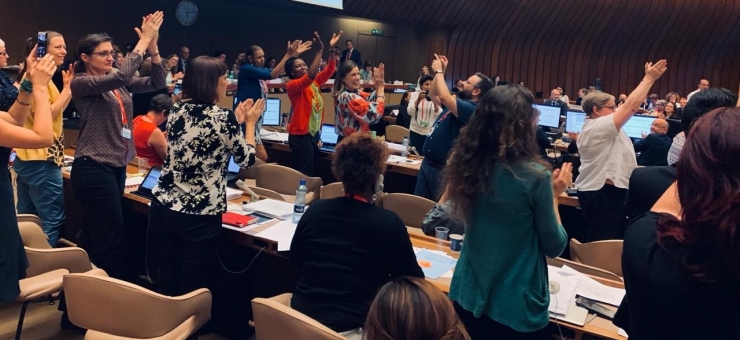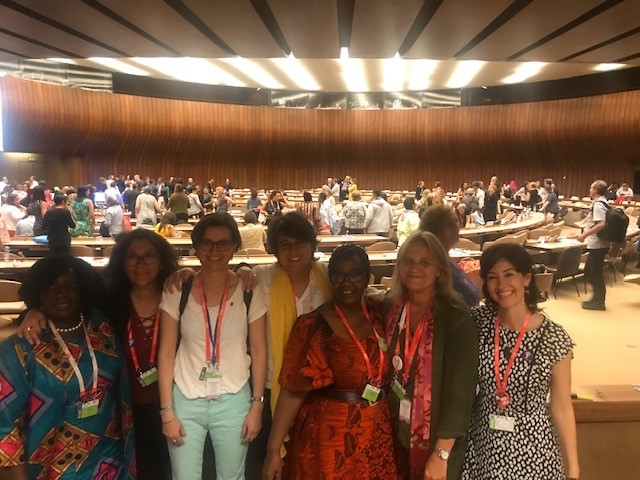Historic victory in battle for gender equality: ILO Convention to End Violence and Harassment in the Workplace adopted

UNI celebrates new convention and calls on governments to ratify it immediately to prevent epidemic of gender-based violence it the workplace
UNI Global Union, spearheaded by its UNI Equal Opportunities team, have long been part of the struggle to make the ILO Convention to End Violence and Harassment in the Workplace a reality. Today that major step forward in the battle for gender equality finally happened with the adoption of the Convention on the last day of the ILO’s International Labour Conference (ILC) in Geneva.
UNI Global Union General Secretary, Christy Hoffman said, “Make no mistake this is a historic moment and a major victory for women and equality. Forty years ago, you would never have imagined this convention as a global standard , but thanks to the tireless work of trade unions, women’s organisations and other enlightened groups we have finally delivered a legacy for our daughters.
UNI’s Head of Equal Opportunities, Veronica Fernandez Mendez, who led UNI’s push for the Convention at at the ILC this week, said, “What a fantastic way for the International Labour Organisation to celebrate its 100th anniversary. It has been a long time coming but we now have a legally binding convention which will be ratified and implemented globally. This Convention will help save the lives, pain and hardship of millions of women across the world.
The significance of this Convention cannot be overstated; what’s particularly satisfying is that it includes a reference to ‘domestic violence’ – don’t forget that in some countries it is still lawful for husbands to hit their wives. The inclusion of ‘domestic violence’ and procedures to protect and assist victims at work is a huge win!”

The next step is that member states will be asked to ratify and domesticate it and then regularly report on measures taken to implement it. It places responsibilities on both employers and governments to eliminate sexual violence and harassment from the workplace.
The new law addresses the shocking reality revealed by UN statistics that 35 per cent of women – 818 million women globally – over the age of 15 have experienced sexual or physical violence at home, in their communities or in the workplace. More than one in three countries have no laws against sexual harassment in the workplace: an estimated 235m women are left unprotected.
The ILO has created excellent international labour standards on workers’ rights but in its 100 year history this is the first time it has made a global law against workplace harassment and gender-based violence.
Gender-based violence is not about an individual but rather a systemic evil. Victims are targeted for many different reasons – their gender, gender identity, sexual orientation, class or race. It undermines workers and makes them afraid to speak out because they know it will probably result in them losing their job or being further victimised. This power imbalance enables employers to pay pitiful wages that do not support families, and get away with unsafe workplaces, further compounding a culture of violence and harassment on the job.
The new convention is finally a step in the right direction towards rectifying a situation which goes against the human rights enshrined by the United Nations for seventy years.

